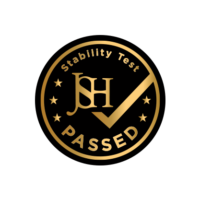In the contemporary world, conversations about anxiety and stress are as common as discussions about the latest smartphone models. While our inclination to address these topics might be attributed to our promotion of Ashwagandha – a potent adversary of stress and anxiety – the reality is far more profound. We are on a mission, not just of commerce, but of enlightenment. Stress, often dubbed the silent killer, lurks in the shadows of our fast-paced lives, contributing to a plethora of health issues.
Stress isn’t inherently malevolent. It’s a natural, unavoidable human response, an ingrained mechanism designed to enhance our adaptability.
When confronted with change or challenges, our bodies initiate a series of physical and mental reactions. It’s akin to an internal alarm system, alerting us to potential dangers and preparing us for action.
It’s our body’s innate rally against crisis, potentially turning stress into a tool for adaptability and resilience.

Interestingly, not all stress is born equal. There’s the villainous ‘distress’ and the heroic ‘eustress’. Distress is the nefarious character associated with illness, financial woes, and familial discord. On the flip side, eustress is the unsung hero emerging amidst life’s joyous occasions – weddings, births, and career advancements.
Stress, in its positive incarnation, can be a catalyst for heightened alertness, motivation, and danger evasion. It’s the unseen force that propels you through that pivotal exam, or the silent whisper that keeps you awake and vigilant during critical moments.
However, like an unwelcome guest, stress becomes problematic when it lingers incessantly, devoid of intervals of respite. In the absence of relief, the continuous activation of the stress response can wreak havoc on your holistic well-being.
So, as we unravel the enigmatic tapestry of stress, oscillating between its dual roles as both protector and perpetrator, the question arises – how do we mitigate its insidious impacts? The answer lies not in absolute eradication but in informed management and mitigation.
Stress is akin to a double-edged sword, wielding the power to both enhance and impair our existence. It’s an intrinsic aspect of the human experience, an entity to be understood, navigated, and mastered. As we delve deeper into the intricate dance of distress and eustress, we unveil the pathways to not just surviving, but thriving amidst the silent symphony of stress echoing through the modern age.
The long-term health effects are alarming. Chronic stress is a silent contributor to a range of health complications, including mental disorders, heart diseases, and digestive issues. The connection between ongoing stress and inflammation in the coronary arteries is particularly concerning, raising the risk of heart-related issues.

However, like an unwelcome guest, stress becomes problematic when it lingers incessantly, devoid of intervals of respite. In the absence of relief, the continuous activation of the stress response can wreak havoc on your holistic well-being.
The negative impacts of excessive stress are extensive, affecting both mental and physical well-being. Emotionally, it manifests as increased irritability, a constant feeling of being overwhelmed, and mood swings. Physically, symptoms like chronic pain, sleep disturbances, and a weakened immune system become prevalent.
Cognitive abilities often bear the brunt of excessive stress. Concentration can become elusive, with the mind juggling multiple thoughts, making focus a luxury rather than a given. The clarity of thought is clouded, and the precision of mental faculties is dulled. Organizational skills, once perhaps a strong suit, begin to wane. Tasks that were once straightforward and manageable can start to feel insurmountable, leading to a cycle of procrastination and anxiety.
Cognitive abilities often bear the brunt of excessive stress. Concentration can become elusive, with the mind juggling multiple thoughts, making focus a luxury rather than a given. The clarity of thought is clouded, and the precision of mental faculties is dulled. Organizational skills, once perhaps a strong suit, begin to wane. Tasks that were once straightforward and manageable can start to feel insurmountable, leading to a cycle of procrastination and anxiety.
Forgetfulness may creep in, with important details slipping through the cracks, exacerbating the stress. The brain, in its overwhelmed state, struggles to retain and recall information with its usual efficiency. Decision-making too can become a challenge, with the overload of stress hormones like cortisol impairing the brain’s processing capabilities.
In the realm of practical steps, incorporating regular physical activity is paramount. Exercise not only improves physical health but also enhances mood by increasing the production of endorphins, the body’s natural stress relievers.
A balanced diet is another cornerstone. Consuming nutrient-rich foods ensures the body and brain have the necessary fuel to function optimally. Avoiding excessive caffeine and sugar can also stabilize energy levels and mood. Sleep, often compromised under stress, is vital.
Establishing a regular sleep routine and creating a restful environment can significantly improve sleep quality, enhancing the body’s ability to cope with stress.
Furthermore, time management can be a silent ally in the battle against stress. Organizing the day, prioritizing tasks, and allocating time for relaxation and leisure can prevent the feeling of being overwhelmed and enhance the sense of control over one’s life.

Building mental fortitude involves developing coping strategies to navigate through stressful situations with ease. Mindfulness and meditation practices have proven effective in enhancing mental clarity, focus, and emotional stability. These practices promote relaxation and a sense of calm, reducing the physiological and psychological impacts of stress. Additionally, identifying and addressing stressors proactively is essential. It involves assessing the situations that induce stress and working on practical solutions or coping strategies to manage them effectively, reducing their impact over time.
The role of social support in stress management is often underestimated. Connecting with others provides an opportunity to share experiences, gain perspective, and receive emotional support. Joining support groups, whether online or in person, can connect individuals with others facing similar challenges, reducing feelings of isolation.
In the search for natural support, Ashwagandha+ stands out. It’s more than a supplement; it’s a resource for those looking to mitigate stress and anxiety, backed by clinical evidence.
Tackling the complex issue of stress requires a balanced, informed, and active approach. From recognizing the symptoms to adopting lifestyle changes, mental fortitude building, and exploring natural supports like Ashwagandha+, every effort counts towards achieving a life characterized by better health and peace of mind.
Our sources and more info:

Copyright 2024 © Mountaindrop. All rights reserved. Powered by EOSNET









